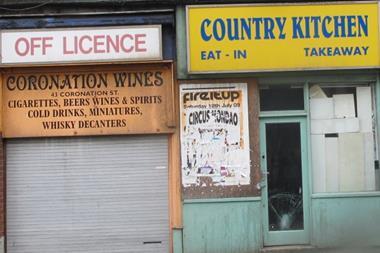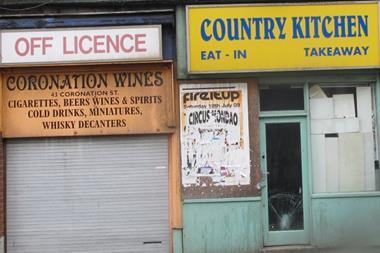One in five shops in the 12 original Portas Pilot towns have closed, new Local Data Company research shows.
Five years on from the scheme’s launch in 2012, the 12 towns have lost almost 1,000 shops collectively, equivalent to a rate of one closing every 22 days, the BBC-commissioned research reveals.
The fall is around the same rate of decline as seen across the rest of the country.
The choice of shops has also decreased - the number of shops selling big ticket items such as clothes and electrical goods declined in all but three of the towns.
The 12 town centres shared a £1.2m fund to revitalise their high streets and were given access to support from ‘retail guru’ Mary Portas back in 2012.
Investments had included offering community use of empty properties in Bedford, a school for shopkeepers in Dartford, Kent, and a bicycle rickshaw service in Bedminster, Bristol.
Portas has hit out at the government following the news, calling the scheme a “weighted PR campaign” that hadn’t kick-started growth.
She told the BBC that the scheme was used to create the impression that efforts were being made to revive Britain’s high streets, when in fact no policies were created at all.
Responding to the findings, a spokesman for the Department for Communities and Local Government (DCLG) told Convenience Store: “High streets and town centres are at the heart of our local and regional economies - creating jobs, nurturing small businesses and injecting billions of pounds into our economy.”
The scheme has had some successes since its launch, including a 20% increase in trade in Dartford, the spokesman added.
“The focus now is sharing the learning from successful areas and making sure we support local people in realising the long-term potential of their high streets and town centres.”
The original 12 Portas Pilot towns included Bedford, Croydon, Dartford, Greater Bedminster, Liskeard, Margate, Market Rasen, Nelson, Newbiggin-by-the-Sea, Stockport, Stockton-on-Tees and Wolverhampton.


























No comments yet